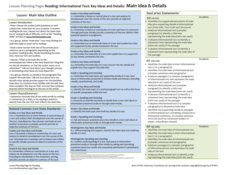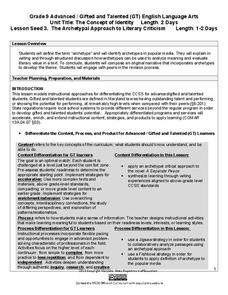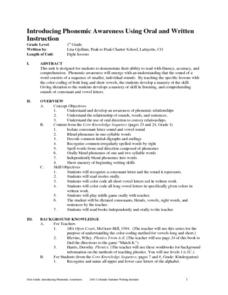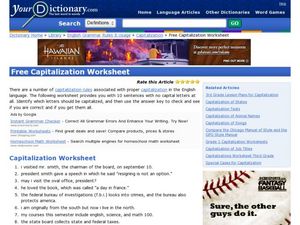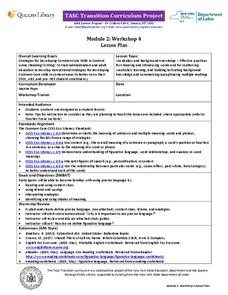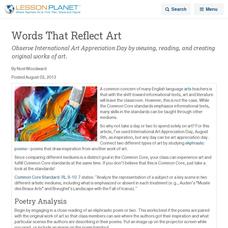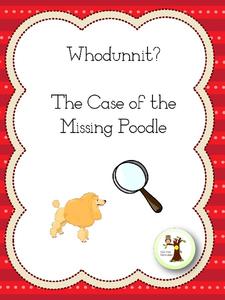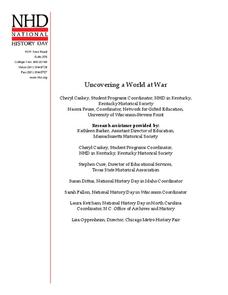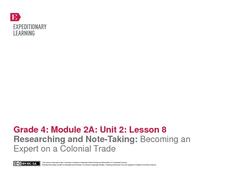Santa Ana Unified School District
Early American Poets
The poems of Walt Whitman and Emily Dickinson are the focus of a unit that asks readers to consider how an artist's life and changes in society influences his or her work. After careful study of Whitman's and Dickinson's perspectives on...
For the Teachers
Main Idea Outline
Find the main idea in an informational text with a versatile lesson. Three levels of differentiation help you implement the strategy in any age or class level, based on the ability and objectives of your learners.
Maryland Department of Education
The Concept of Identity Lesson 3: The Archetypal Approach to Literary Criticism
As class members continue their study of approaches to literary criticism, readers examine the symbolism and archetypal patterns in John Knowles' A Separate Peace, and how these parallels are used to develop a theme in the story.
Maryland Department of Education
The Concept of Identity Lesson 5: Motivation - Maslow's Hierarchy of Needs
Maslow's Hierarchy of Needs provides the lens class members use to analyze and evaluate the motivations of the characters in Sylvia Plath's "Initiation" and scenes from Mean Girls. Readers then select a character from A Separate...
Montclair Art Museum
Eric Carle: Animals and Friends
Celebrate Eric Carle’s beloved children’s books, especially those about animals. Teachers and readers alike engage in Carle’s books as they explore the art and color in each of his stories, and how these elements support comprehension.
Curated OER
You Don't Say!!
Fourth graders write and respond to sayings throughout the school year. They define the idioms, illustrate them and compare their meanings with other groups in the class.
Curated OER
Introducing Phonemic Awareness Using Oral and Written Instruction
First graders demonstrate their ability to read with fluency, accuracy, and comprehension through phonemic awareness. They use a color-coding system to master the long and short vowel sounds and develop their skills in listening and...
Curated OER
Dinosaur Reading Comprehension
What is more interesting than a dinosaur; three dinosaurs! Second graders hone their reading comprehension skills by learning about the T-Rex, Pachycephalosaurus, and diplodocus. They read three short paragraphs and answer three...
Curated OER
Look, Think, and Read- Sentences Describing Pictures- Dogs
Little ones will look, think, then read to determine what the simple sentences are saying. There are three images of dogs doing different things, learners will look at each image then read each of the three simple sentences located next...
Curated OER
Close Reading of a Sonnet
Students practice reading sonnets line by line to find the message of the sonnet. In this sonnet lesson plan, students read a sonnet one line at a time as the teacher projects it for the entire class. As each line is shown, students...
Curated OER
Pre-reading for Julius Caesar
Students examine friendship and leadership by creating "friendship committees" to develop a class friendship constitution. Committees list qualities/traits of a friend, as well as friendship infractions. These committees join together...
Curated OER
Garden Grid
Basically, your class reads about different garden plants from an included handout and seed packets that you provide, and then uses a grid to plan out where to place the plants. They can practice counting with the seeds, grouping,...
Curated OER
Plant Parts We Eat
I bet the kids in your class will love to eat their vegetables after an engaging lesson plan about edible plants. They read information about vegetables and edible plants, sort vocabulary words, identify plant parts, measure and graph...
Ohio Department of Education
Fraction and Decimal Equivalency
Mathematicians make representations of fractional parts of a whole and learn that a decimal is another way to represent a fractional part. Understanding is extended by comparing and ordering fractions and decimals on a number line. This...
T. Smith Publishing
Fun With Fruit
Following directions and counting skills are foundational for your kindergarteners. On this simple worksheet are pictures of pears, apples, bananas, and oranges for youngsters to count and draw shapes around according to written...
Curated OER
A Tough Nut to Crack
Children, based on a set of criteria, evaluate the quality of pecans. They research recorded history of pecan trees as well as how their seeds moved across western Missouri into southeastern Kansas, Oklahoma, Texas and Mexico. In...
Love to Know
Free Capitalization Worksheet
Not really a worksheet, but rather, a website that has 10 sentences void of all capital letters. Copy these onto a handout or project them on the wall for your class to use as practice. Answers follow, along with an explanation as to why...
New York State Education Department
TASC Transition Curriculum: Workshop 4
Why is it important to use precise language? Participants explore this question in the fourth activity in a series of 15 on effective instruction. Perfect for all content areas, the activity promotes appropriate language choice through...
Curated OER
Words That Reflect Art
Observe International Art Appreciation Day by viewing, reading, and creating original works of art.
Tick Tock Curriculum
Whodunnit? The Case of the Missing Poodle
Who purloined the poodle? Class groups read police reports and theorize whodunnit. The sixth of a ten-lesson series on mysteries.
Curated OER
A Walk on the West Side
Students comprehend what makes up the physical community. Read and construct scale drawings and models. Explore the history of infrastructures and how the contributions of science, math and industry have led to the development of their...
Dream of a Nation
Writing a Narrative Essay
Imagine using narrative essays to encourage change. This multi-week unit plan does just that. After reading a series of articles from Tyson Miller's Dream of a Nation: Inspiring Ideas for a Better America, class members examine the...
National History Day
Uncovering a World at War
Has media always had an influence on public policy? After researching and reading news articles written during World War I, learners understand the influence of communication and media. They discuss articles in small groups and as a...
EngageNY
Researching and Note-Taking: Becoming an Expert on a Colonial Trade
Fourth graders work in small groups to become experts on different colonial trades in the eighth instructional activity of this unit. Working toward the long-term goal of writing a piece of historical fiction, young scholars read...



